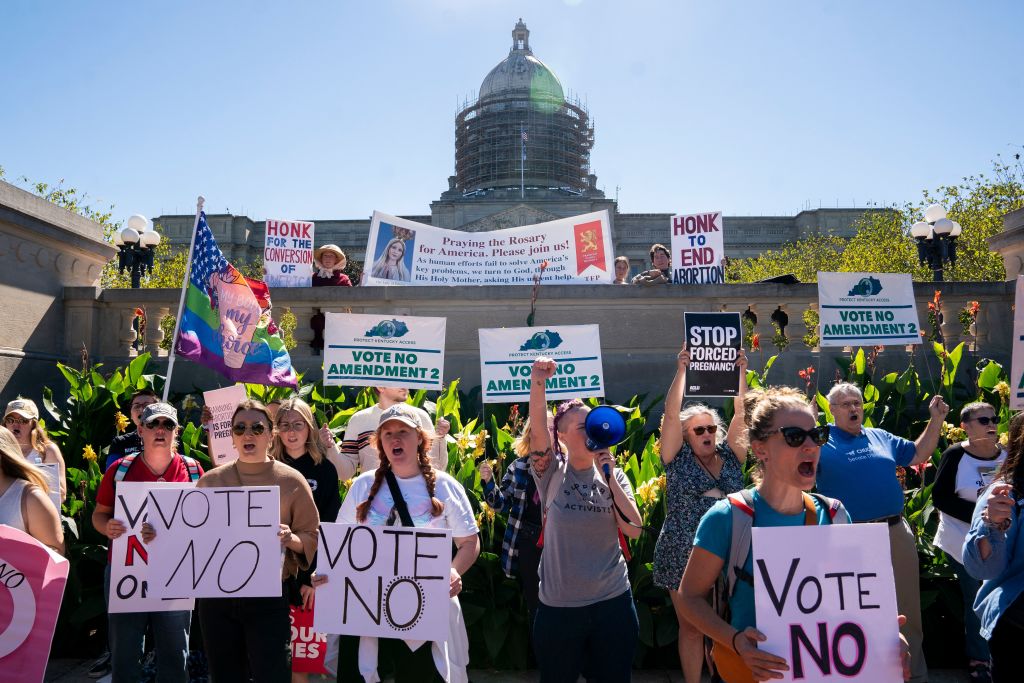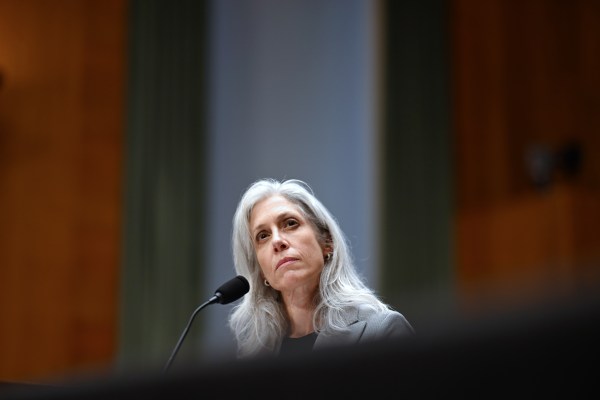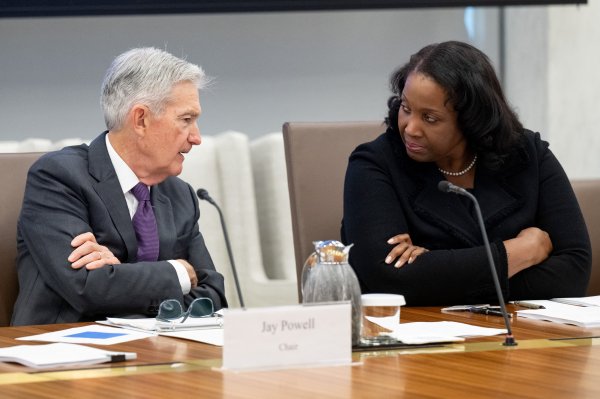The Supreme Court’s June decision in Dobbs v. Jackson Women’s Health was a moment of pro-life jubilation, the culmination of decades of focused activism against the legal abortion regime of Roe v. Wade. But now members of the anti-abortion movement are grappling with whether their greatest legal triumph led to political defeat in this week’s midterms.
With historical trends and a curdling economy suggesting that Democrats could face historic losses, Team Blue made a risky bet on abortion rights. In October, abortion-related ads amounted to nearly half of all Democratic spending nationwide, nearly triple the amount they spent on the second-biggest issue (crime).
It worked. As Democrats turned out across the country in greater-than-expected numbers, exit polls suggested the number one issue on their mind was abortion. One particularly striking exit poll result from Pennsylvania—where Democratic Lt. Gov. John Fetterman defeated Republican Mehmet Oz in a race for Senate despite having not fully recovered from a life-threatening stroke—found abortion to be the biggest issue among all voters, edging out inflation 36 percent to 29 percent.
“Democrats’ enthusiasm this cycle is clear—and directly related to Republican overreach on abortion rights,” Yasmin Radjy, the former national political director of Planned Parenthood Action Fund who now serves as executive director of progressive volunteer organization Swing Left, told The Dispatch Tuesday night. “At Swing Left, our grassroots volunteer signups reached 2018 surge levels right after the Supreme Court’s decision on Dobbs.”
Meanwhile, ballot initiatives in red and blue states put an exclamation point on the electorate’s broad distrust for Republican efforts to curtail abortion. Voters in Republican Kentucky, mimicking voters in Republican Kansas this summer, roundly defeated a constitutional amendment put forward by pro-life groups that would have made it easier to implement abortion bans already passed by the GOP legislature. Meanwhile, initiatives protecting abortion access outperformed Democrats on the ballot in Michigan, California, and Vermont, and may even have given Democratic candidates a tailwind: Michigan Democrats captured full control of state government for the first time in four decades.
What this will mean for the relationship between the pro-life movement and the broader institutional GOP remains to be seen. The two groups were not on the same page during this year’s cycle. For the most part, Republican groups were content to cede the issue to Democratic messaging, relying on the theory that an electorate sympathetic to Democrats on abortion but unhappy with the economy would still break their way in the end.
This strategy had some pro-lifers sounding the alarm early. Frank Cannon, founder of the social-conservative think tank American Principles Project and chief political strategist for the anti-abortion group Susan B. Anthony Pro-Life America, argued in August that Republicans were committing “political suicide” by allowing Democrats to define them on abortion.
“They plan to say absolutely nothing,” Cannon wrote at the time. “Instead, when cornered, federal Republicans will vaguely gesture towards the state legislatures and then reflexively pivot to a diatribe about gas prices and inflation.”
Parallel tensions played out in the Senate in September. At the urging of groups like Cannon’s, a coalition of Republican lawmakers led by Sen. Lindsey Graham introduced legislation to ban abortion nationwide after 15 weeks of pregnancy—a cutoff point that pro-lifers argue is nationally popular. Such a proposal, the thinking went, could help defang Democratic efforts to paint Republicans as dogmatic opponents of all abortions in all cases. But Minority Leader Mitch McConnell poured cold water on the proposal, telling reporters that “most of the members of my conference prefer that this be dealt with at the state level.”
For his part, Cannon scoffs at the notion that abortion is a built-in liability for Republicans post-Dobbs. He pointed to Republican governors, including Florida’s Ron DeSantis, Ohio’s Mike DeWine, Texas’s Greg Abbott, and Georgia’s Brian Kemp, who fared well in their reelection bids despite having supported abortion restrictions during their first terms. And he drew a contrast between candidates like Florida Sen. Marco Rubio, who was happy to discuss his position on abortion during the campaign, and Pennsylvania’s Oz, whose much-derided remark that he would leave the question of abortion to “women, doctors, local political leaders” made him the poster child for counterproductively dodging the question.
“I think the lesson to be drawn is you have to go on offense,” Cannon told The Dispatch, adding that “the people who had no idea what their policy position was were the ones who were clobbered.”
It’s possible that 2022’s outcome gives birth to a class of Republican candidate that is more willing to strike a deliberately moderate tone on abortion policy. But don’t go thinking that’s likely to extend all the way to the top of the ticket.
“The only strength the pro-life movement has is that it is an enormous force in the Republican Party and in the country that is a populist force, not an elite force,” Cannon said. “And as a populist force it has to exert itself in the primary process. I will guarantee to you that there will be no Republican nominee, no matter who you think it might be, who doesn’t support a federal role to protect unborn babies in all the states in the country.”






Please note that we at The Dispatch hold ourselves, our work, and our commenters to a higher standard than other places on the internet. We welcome comments that foster genuine debate or discussion—including comments critical of us or our work—but responses that include ad hominem attacks on fellow Dispatch members or are intended to stoke fear and anger may be moderated.
With your membership, you only have the ability to comment on The Morning Dispatch articles. Consider upgrading to join the conversation everywhere.